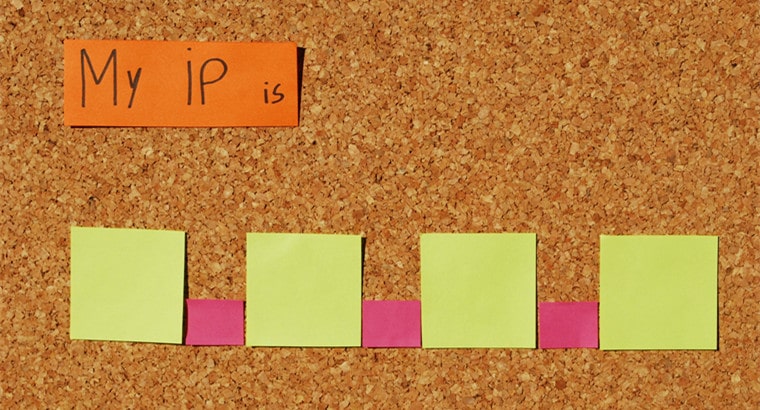To communicate via the internet, every digital device must have unique parameters that determine its identity. To effectively communicate with each other without interception of other messages, our computers and smartphones have IP addresses that make them unique members of the Wide Area Network.
Operating by the rules established by the Internet Protocol. By knowing another person’s IP address, you can learn their approximate physical location, and the data to further recipients has a bigger latency.
Without IP addresses, the internet would be too chaotic and could never support the rapid communication we love and enjoy today. However, there are many ways in which this private piece of information can be abused. While you would never give up your social security number to random people, an IP is a private piece of information that gets exposed on a daily basis.
Even though we cannot have the web without them, the constant abuse of IP addresses is getting out of hand. In order to protect your online security, you need to know what can somebody do with your ip address. For example, upon visiting a well-optimized website, your network identity will be stored and logged, and every decision or interaction of the page will be tracked, monitored, and used to build up your personal profile for tracking. The unwilling surrender of information turns every internet user into a product.
IP tracking is constantly used for advertisement, localization, and user analysis by tech companies, which combine it with other footprints of personal data to recognize and track you. However, while exposing your network identity can be dangerous, there are ways to prevent tracking.
In this article, we will discuss the ways to conceal your IP address and even choose your alternative identity. For example, you can connect to websites while using a German proxy and even unblock restricted websites that are only available to local users. Proxies are powerful intermediary servers that let you mask your original IP address with very little loss of internet speed.
Of course, if you choose a German proxy, like this one, you will have more options compared to servers in remote locations, but most top providers have servers in most countries around the world. Continue reading if you want to learn more about a German proxy, proxy servers in general, and alternative solutions for hiding your IP address.
Use a Virtual Private Network (VPN)
VPNs are great security solutions that not only change your IP but also encrypt the connection with a tunneling protocol. With downloadable apps on most desktop and mobile devices, VPNs are especially good for connections to public networks, as the encryption prevents the owner of the network from spying on you.
The only downside of VPNs is the price. While top providers offer easy-to-use apps, there are cheaper alternatives to hide your IP address. Still, if you want to test the service, most providers offer a free trial period or a 30-days money-back guarantee.
Connect to the internet with the ToR browser
ToR browser uses onion routing – a layered connection to provide anonymous connections to every user. Somewhat like other methods, it uses a chain of unknown servers as nodes to establish the connection with the recipient server under a different identity.
While it is a strong tool for anonymity, the ToR browser comes with a lot of downsides. While the number of anonymous nodes is limited, the software is often used with illegal and malicious intent, getting a lot of servers and their IPs banned. On top of slow speeds, it is a secure but very limited method of IP masking that comes with a lot of downsides.
Get a proxy server
Proxy servers are the most lightweight solution on this list that does not require extra software and configurations to deliver results. While it lacks the security features of a VPN, proxy servers offer the most straightforward way to hide your IP address.
With proxies, which have three main options: datacenter proxies, residential IPs, and free proxy servers. Let’s take a closer look at these choices.
Datacenter proxies are high-end servers located in data centers, and users can connect to organized sets of addresses. They are the fastest and cheapest option, but because they have no ties to internet service providers (ISP), recipient servers can recognize them as masked internet traffic.
Still, for personal, anonymous browsing sessions, it is a solid solution that will keep your main address safe. Proxy providers that offer datacenter IPs usually have thousands of identities at their disposal, leaving you with plenty of available options.
Residential proxies offer the most anonymity because these addresses are shared with real devices, therefore, their connections are the best for web scrapers and other automated tools that endanger your main IP address.
Free proxies are servers set up by unknown third parties, and while they mask your IP address, the owner can spy on your data and steal valuable information. Open proxies are dangerous to cybersecurity, and we recommend avoiding them at all costs.
Conclusion
With the methods described above, you can protect your IP address and minimize exposure to private data. VPNs are more complex security tools that provide anonymity on the web, while proxy servers are lightweight solutions with more available identities. All things considered, the ultimate choice will depend on your individual use cases.










